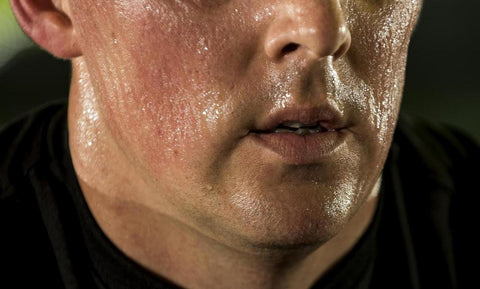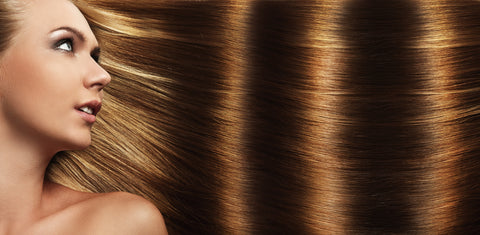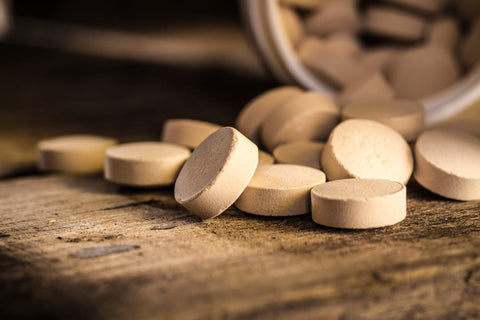In normal circumstances, we sweat as a result of increased temperature, physical activity and other causes, but in hyperhidrosis, the sweat glands manufacture surplus sweat for no apparent reason, and often continuously.
Excessive sweating (hyperhidrosis) can affect entire body or certain areas, especially palms, feet, underarms or face.
Causes, Triggers & Risk Factors
Overactive sympathetic nerves. Although, it is still unclear what causes this condition, it is possible that nerves responsible for triggering sweating overreact, causing excessive perspiration even when it’s not needed.
Hyperhidrosis may be associated with dysfunctional hypothalamus as it is the part of the brain that is accountable for all sweat associated functions of the body. It activates the sweat glands by sending signals through the nervous system.
Other factors may include the following:
- Heat
- Infectious diseases
- Hypoglycaemia (low blood glucose levels) and diabetes
- Hyperthyroidism (overactive thyroid) and Graves’ disease (autoimmune)
- Menopause (oestrogen deficiency)
- Stress & anxiety
- Gout
- Monosodium glutamate (MSG)
- Caffeine, tea & Chocolate
- Spicy food, Curry, Cumin
- Alcohol and withdrawal from alcohol or other addictive substances
- Tumours and Leukaemia
- Endocarditis (an infection of the inner lining of the heart)
- HIV/AIDS
- Medication such as beta blockers, antidepressants, pilocarpine (for dry mouth) etc.
- Zinc supplements can sometimes trigger excessive sweating
- Obesity
- Tuberculosis
- Mercury poisoning
- Head trauma
- Hyperpituitarism
- Pregnancy
- Hodgkin’s disease
- Having a family member with hyperhidrosis symptoms
Supplements & Herbs
-
Detoxify your body from fluoride and heavy metals, especially mercury, by drinking more water and herbal teas between meals, and especially by taking Super Greens and Chlorella (most effective in removing fluoride).
-
To support function of the nervous system and increase your ability to control stress, take Ashwagandha, Magnesium, and Vitamin B complex or Multivitamin with Zinc and B Vitamins.
-
If your excessive sweating is associated with Menopause, use supplements such as Menovital which contains sage, soy isoflavones, black cohosh, evening primrose oil, zinc and vitamin B6 which regulates hormonal balance.
-
Sage. Tieraona Low Dog, M.D. claims to successfully use sage for her patients with excessive perspiration. Sage leaf is approved by German health authorities for the treatment of hyperhidrosis. Drink sage tea 2-3 times a day between meals or take dried sage leaf in capsules (500-1,000 mg twice a day).
External Applications
-
Use natural antiperspirants such Magnesium chloride oil or spray, etc.
-
Lemon may help reduce excessive sweating. Rub half a lemon on your underarms (while gently squeezing it) or mix some lemon juice with baking soda and apply it with a cotton pad. Leave it for at least 30 minutes, and rinse.
-
Apple cider vinegar applied directly to the skin help remove bacteria and close up pores.

Additional Recommendations
-
Wear leather shoes and 100% cotton socks that draw moisture away from the feet.
-
Avoid synthetic fabrics and wear loose-fitting clothing.
-
Avoid dehydration by drinking 2-3 glasses of filtered or even better distilled water.
-
Avoid spicy food, alcohol, caffeine, tea, green tea, chocolate, cola drinks, refined foods, etc.
-
Read labels and avoid MSG, artificial sweeteners, high fructose corn syrup, and sugar.
-
Sweat-inducing exercise every day for at least 60 minutes and water treatments such as sauna to stimulate sweating (remember to drink plenty of water, take cold shower every 5 minutes and apply cold compress on head and neck).
Synthetic Antiperspirants
Formalin solutions are also used for excessive sweating but can be applied only to the soles of the feet. They harden the skin and can block the sweat tubes leading from sweat glands to the skin surface.
Aluminium chloride is the common ingredient in antiperspirants prescribed for excessive sweating. They are applied at night only, to dry skin under the arms, on hands and feet. These antiperspirant are applied on top of skin and when you sweat, they are pulled into the sweat glands plugging them. When the body senses that the sweat glands are plugged, it may stop producing too much sweat.
Unfortunately, these antiperspirants often lead to burning sensation, skin irritation and other side effects.
Related Articles:
- Chlorella: Most Incredible Superfood
- Thyroid Health
- What Is Stress And How To Cope With It
- Are Menopausal Symptoms Normal And How To Prevent And Cope With Them?
- How to Improve Mood and Emotional Health
- Kiss Your Sugar Cravings Goodbye
- Obesity and Overweight
- Ashwagandha (Withania somnifera)
Any information or product suggested on this website is not intended to diagnose, treat, cure or prevent any medical condition. Never disregard medical advice or delay in seeking it because of something you have read on this website. Consult your primary healthcare physician before using any supplements or making any changes to your regime.




